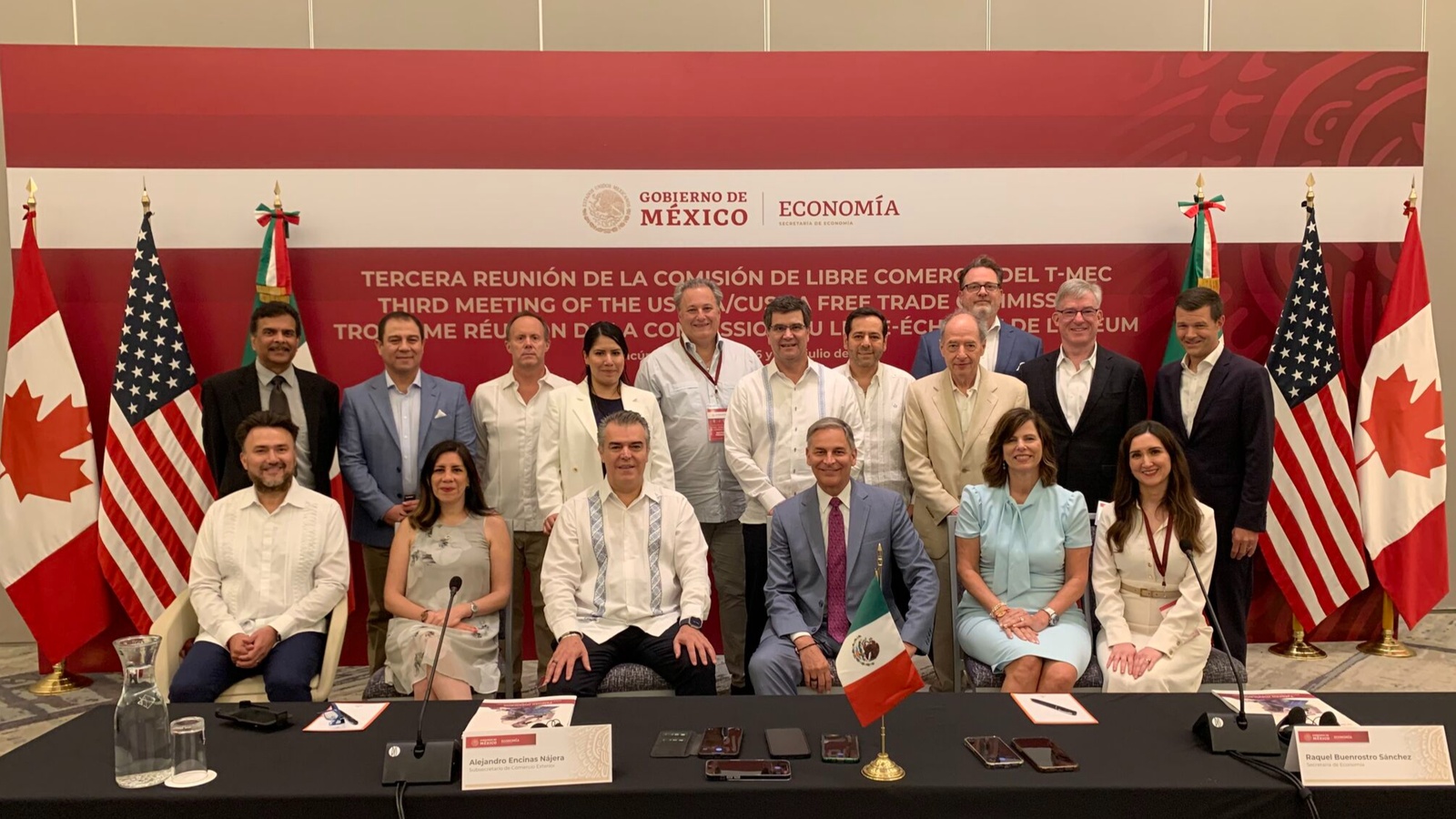California Agriculture Workers Warn Against EPA Proposal

Manufacturers have long been leaders in sustainability, as have their partners in the agricultural industry. But as the Environmental Protection Agency considers imposing new restrictive air standards, groups across the country are speaking out in opposition.
In California, a group called the Nisei Farmers League is making noise.
Formed by a small group of Japanese American growers in 1971 as a “mutual protection society,” the NFL has become a well-respected organization committed to serving the needs of growers, farm workers and other members of the agriculture community in California. Today, they are sounding the alarm about a proposed EPA rule that would enforce a tighter national ambient air quality standard for fine particle pollution known as PM2.5—a move that could impact everything from permitting to international competition.
Widespread impacts: According to NFL President Manuel Cunha Jr., the regulations could be devastating for growers in California and farmers across the country.
- “There are issues with this regulation that the public just doesn’t realize,” said Cunha. “It impacts jobs. It impacts our ability to move freight. If you think the cost of food is high today, it will be even higher if this rule goes into effect.”
A closer look: Cunha knows the impacts of regulations like this one firsthand. He tells the story of a colleague who uses machinery to dehydrate fruits like apricots and peaches, but whose machinery would be unaffordable if he was forced to adhere to the stricter standard.
- “If they come out with a new standard, he’ll have to shut down,” said Cunha. “He can’t afford to build new equipment—the cost is unsustainable. It’s not economically feasible. And that’s what they’re telling our farmers to do.”
Impeding growth: Rapid shifts in environmental standards have also made it difficult for growers and other members of the agricultural community to adjust and succeed.
- “These standards keep changing, and it’s impossible to keep up,” said Cunha. “Our area in the San Joaquin Valley has seven plans with the EPA that are waiting for approval, and every time we turn around, there is another standard holding us back.”
- Meanwhile, strict standards imposed on other parts of the supply chain create costs that get passed along to farmers.
A message to policymakers: Cunha is speaking out because he wants policymakers to think about the realities of the proposed rule—including the costs that states will bear and the ripple effects throughout the agricultural supply chain.
- “How do we keep jobs?” said Cunha. “How do we keep our rural communities alive if you’re developing rules that don’t have the facts and the science behind them? Politicians are going on the basis of what looks and sounds good, but you have to realize that what you’re doing is driving out small farmers.”
NAM Study: Employer-Provided Health Plan Costs Are Rising

Providing health care benefits to workers is becoming increasingly expensive for manufacturers, but Congress can take measures to help offset these costs, according to a new NAM study.
What’s going on: The NAM released “Manufacturers on the Front Lines of Communities: A Deep Commitment to Health Care” yesterday. The report includes the results of surveys and manufacturer interviews that detail industry-wide health benefits and trends, as well as federal policy proposals that could jeopardize manufacturers’ ability to continue offering health care plans.
Key findings: Below are some of the report’s most notable takeaways:
- Tax incentives: Designing and offering health care benefits is getting more expensive for employers. To fight these rising costs, Congress must keep in place the tax benefits offered to companies providing such plans to workers.
- Affordability: Employer-offered health care must be affordable for employees. To ensure that it is, Congress should consider seeking revision of some of the opaque rules governing health and flexible savings accounts and pharmacy benefit managers.
- Early intervention: Intervening in health-related situations early—as in the cases of obesity, cancer and other conditions—can lower future costs for employers and employees alike. Primary care can catch and help correct many illnesses and so must be incentivized.
The last word: “Manufacturers feel a deep commitment to providing quality health care for their employees despite the increased costs and challenges of doing so,” said NAM Director of Human Resources and Innovation Policy Julia Bogue.
- “Manufacturers are innovative in their health benefits to best address the challenges employees face, from primary care to chronic-condition management.”
NAM Hits Back at Price Controls in PAHPA Draft

The Pandemic and All-Hazards Preparedness Act, which expires at the end of September, is critical to public-health emergency readiness. Yet, a Senate bipartisan discussion draft to reauthorize it contains some provisions that are troubling to manufacturers, the NAM told the Senate Committee on Health, Education, Labor & Pensions this week.
The background: The Senate released a draft of a bill last week to reauthorize PAHPA, a measure passed in 2006 with the intention of ensuring national readiness for public-health emergencies.
Imposing price caps: The draft contains a requirement to cap the cost of any product that has received support from either the Centers for Disease Control and Prevention or the Biomedical Advanced Research and Development Authority “at the lowest price charged for such … product[s]” among the G7 countries (the U.S., Canada, France, Germany, Italy, Japan and the United Kingdom).
- Such a move would erase the advances made over the decades since the 1980 passage of the Bayh-Dole Act, which created mutually beneficial economic partnerships between the federal government, universities and private industry, NAM Managing Vice President of Policy Chris Netram said in his message to the committee.
- A price limit “would reduce the positive impact of the Bayh-Dole Act by imposing price controls on products developed through the innovation spurred by these partnerships,” he said.
Deterring innovation: Pricing controls also threaten continued scientific advancements of the sort that have cured once-prevalent diseases and solved “some of the world’s most prevalent and challenging health issues,” Netram continued.
- “The development of new medicines demands tremendous financial investment, many years of intensive effort and a willingness to accept significant risk. While public–private partnerships are important in stewarding new drugs to market, pharmaceutical companies bear almost the entire cost of discovering new drugs, ushering them to approval and scaling them through manufacturing.”
- In 2019, the pharmaceuticals industry invested more than $83 billion in the research and development of new drugs, Netram said, citing Congressional Budget Office data.
Stopping the flow of medication: Perhaps most concerningly, setting cost caps on drugs also jeopardizes the flow of medications to those who need them, Netram told the committee.
- “Price controls … restrict the supply of medicines to patients,” Netram concluded. “As such, price control language should be excluded from the PAHPA.”
NAM Advances Manufacturing Priorities at USMCA Meeting in Mexico

The NAM met with North American trade ministers last week in Cancun, Mexico, where it urged them to take up key trade priorities for manufacturers.
What happened: The NAM led a delegation from the American business community, which participated in a roundtable discussion ahead of the third United States–Mexico–Canada Agreement “Free Trade Commission” on July 7 in Cancun.
- Attendees at the roundtable event included NAM President and CEO Jay Timmons, U.S. Trade Representative Katherine Tai, Canadian Minister of Small Business, Export Promotion and International Trade Mary Ng, Mexican Secretary of the Economy Raquel Buenrostro and business executives from the three countries, including Rockwell Automation Chairman and CEO Blake Moret.
Shared values: The NAM underscored the importance of an investment climate underpinned by core democratic principles, such as transparency and the rule of law.
- “We believe in democracy,” Timmons said. “However imperfect, this system fosters free enterprise, competitiveness, individual liberty and equal opportunity. These values make manufacturing strong in our countries.”
- He added that each year North American manufacturers contribute $3 trillion to the U.S., Canadian and Mexican economies.

What must be done: Though the USMCA already creates advantages for North American manufacturers, the agreement’s full potential can only be realized if the three countries work together to address certain key challenges, Timmons told the attendees. Some of the main hurdles include:
- Mexico’s power-generation policies, which have long favored Mexican state-owned energy companies and led to higher bills for manufacturers that must use existing energy-supply contracts;
- Permitting delays for U.S. projects in Mexico that undercut American firms and reduce energy supply to North American manufacturers and consumers;
- Mexico’s expanded food-labeling requirements and bans on the sale of some U.S. foods and nonalcoholic beverages to minors, which unjustly restrict U.S. exports;
- High spectrum fees in Mexico that deter telecommunications competition, as well as the country’s weak patent enforcement, delayed approvals of pharmaceuticals and bans on certain chemicals and genetically modified corn; and
- Delays in the reform of Canada’s patent system, ongoing restrictions in Canada’s dairy market, a Canadian government proposal to brand “plastic manufactured items” as “toxic substances” and a change to Quebec packaging and labeling requirements that will upend decades of intellectual property law and could limit access to the Quebec market.
The last word: “Ensuring North American economic integration and regional competitiveness will require a multipronged effort that focuses on robust implementation of the USMCA, ensuring a competitive North American energy market and providing support for the manufacturing workforce across the region, among other key elements,” said NAM Vice President of International Economic Affairs Ken Monahan, who joined Timmons in Cancun.
- “The NAM has positioned itself as a leading U.S. business organization on North American trade and economic matters, and we look forward to continuing to engage with our member companies on these issues going forward.”
NAM to Congress: Protect Manufacturers from SEC Overreach and ESG Activists

Manufacturers across the United States are driving economic expansion while also supporting sustainable business practices, enhancing diversity in the workforce and combatting climate change. Yet, politically motivated activists threaten to slow this progress by insisting on their own narrow agendas. Recent actions by the Securities and Exchange Commission will empower these groups and divert resources from manufacturers’ investments in job creation and business growth.
As the Financial Services Committee in the House of Representatives begins a monthlong hearing series on environmental, social and governance topics and other issues related to the proxy process, NAM President and CEO Jay Timmons is calling on Congress to rein in the SEC’s regulatory overreach and keep activists out of the boardroom.
Depoliticizing corporate governance: Activists on the left and right are increasingly abusing the proxy ballot to advance narrow social and political agendas. The SEC has taken steps in recent years to support and empower these activists.
- The NAM is suggesting reforms to the rules governing shareholder proposals that will prevent activists from hijacking the proxy ballot in pursuit of political agendas unrelated to long-term business growth and shareholder value creation.
Reining in proxy advisory firms: Despite their significant conflicts of interest, errors and lack of transparency, proxy firms exercise outsized influence on corporate governance. More oversight and accountability are needed to protect manufacturers and Main Street investors from these powerful actors.
- The NAM is pressing Congress to ensure that proxy firms are regulated appropriately by the SEC—including by requiring that the firms disclose and manage their conflicts of interest and allow companies to review their draft recommendations.
Protecting Main Street investors: In the face of pressure from ESG activists and proxy firms, the financial institutions that manage Americans’ 401(k) accounts and pension plans must take steps to protect these Main Street investors’ retirement savings.
- The NAM is calling on lawmakers to ensure that asset managers cast proxy votes and make investing decisions solely in Main Street investors’ financial best interests—and without over-relying on proxy firms and ESG ratings organizations.
Limiting ESG disclosure mandates: The SEC’s aggressive ESG rulemaking agenda will increase costs and liability for manufacturers and overwhelm investors with a deluge of irrelevant information.
- The NAM is urging Congress to limit any SEC disclosure mandates to information that is material to shareholders’ investing and voting decisions.
The last word: “Congress must step in to depoliticize the business decisions that impact the lives and life savings of millions of Americans,” said Timmons. “Manufacturers are determined to create jobs, lead the economy and improve the quality of life for all Americans. We are counting on [Congress’] leadership to counter the SEC’s regulatory overreach and help us achieve these goals.
Immigration Is a Personal Cause for This Manufacturing Leader

For Fernando Torres, the vice president of operations at thermoplastics manufacturer Greene Tweed, the issue of immigration is personal. In 1996, at the age of 16, Torres immigrated to the United States. He was undocumented for a time, and he was forced to figure out how to stay afloat.
His story: Alone, without stable residency and barely speaking the language, Torres had a harrowing start in the U.S. But he worked his way through community college, where he excelled in math courses even though he wasn’t yet fluent in English. Torres attributes his love for math and science to his grandfather, who he says is the smartest man he’s ever met.
- “I had a difficult situation at the age of 16 in a new country without knowing the culture or the language, asking, what am I going to do?” said Torres. “Living in this country, it’s the country of opportunities, so I had to find ways to make it work and pursue the American dream.”
- “But, as an undocumented person, the jobs available were not pretty. Whether I was washing dishes at a seafood restaurant or cutting the lawns in Arizona in the middle of the 120-degree weather summers, I just had to find a way to survive.”
Entering the industry: After community college, Torres was accepted into Arizona State University’s program for aerospace engineering—and eventually, he found a place in the commercial sector at Greene Tweed. Today, he’s a U.S. citizen, and he’s just as passionate as ever about the value of immigration.
Immigration and manufacturing meet: Torres has seen the skills gap in manufacturing firsthand, and he knows how difficult it is to fill critical jobs. That’s one reason why immigration is so important to the manufacturing industry, he pointed out.
- “There is a shortage of people,” said Torres. “Skilled laborers are very difficult to find in our country, and retirements are outpacing anyone that’s coming in. There’s not enough people to run our factories—and if we want the economy to grow, we need people to grow it.”
An economic issue: Torres also emphasized that a person’s stance on the issue of immigration in manufacturing should come down to economic considerations.
- “We need to stop talking about immigration as a political issue—it’s a business issue,” said Torres. “We don’t have enough people to grow this economy internally. And if we can’t grow it internally, we have to open factories elsewhere. So this isn’t a political need, it’s an economic need.”
NAM’s push for change: NAM has long fought for commonsense immigration reform and outlined a series of proposals in A Way Forward—a road map that covers border security, reforms to legal immigration and permanent solutions for populations like DREAMers that are facing uncertainty.
The last word: “Immigrants are here to give, not to take away from this country—and we give a lot,” said Torres. “If it wasn’t for the waves of immigration during the last century to the United States, we wouldn’t be the number one economy in the world.”
NAM Doubles Down on PRO Act’s Dangers

The Protecting the Right to Organize Act would “devastate workplaces” if enacted, the NAM told the Senate this week.
What’s going on: The PRO Act—introduced in February by Rep. Robert C. Scott (D-VA) purportedly to expand labor protections—would do significant harm to manufacturers, NAM Director of Labor and Employment Policy Brian Walsh told Committee Chairman Bernie Sanders (I-VT) and Ranking Member Bill Cassidy (R-LA) Tuesday.
What it would do: The PRO Act contains “proposals that would constitute the most radical rewrite of our nation’s employment laws in nearly 100 years,” including:
- Removal of the right to a secret ballot in union elections and the institution of “card check”
- Elimination of right-to-work statutes in the 27 states in which they are law
- Forced payment of union due even by non-union-supporting employees
- A ban on employers talking to their workers about unions without the involvement of a union representative
What should be done: Walsh urged the committee members “to oppose this misguided attempt to fundamentally restructure American workplaces” and instead put their support behind measures that truly support employees.
- “We look forward to opportunities to continue working with members of the [c]ommittee … on legislation such as the Employee Rights Act (S. 1201) to advance productive solutions that meet the needs of today’s workers,” he said.
Manufacturing Associations Launch Coalition to Curb Regulatory Onslaught in Washington
Sector Requests Senior-Level Adviser Designated to Coordinate Efforts Among Agencies Within the White House
Washington, D.C. – Today, the National Association of Manufacturers, members of the NAM’s Council of Manufacturing Associations and Conference of State Manufacturers Associations launched Manufacturers for Sensible Regulations, a coalition addressing the impact of the current regulatory onslaught coming from federal agencies.
According to the NAM’s Q2 2023 Manufacturers’ Outlook Survey, more than 63% of manufacturers report spending more than 2,000 hours per year complying with federal regulations, while more than 17% of manufacturers report spending more than 10,000 hours.
“President Biden and Congress have prioritized strengthening the manufacturing sector in America through historic legislation like the Bipartisan Infrastructure Law, the CHIPS and Science Act, initial permitting reform actions in the Fiscal Responsibility Act and even some energy provisions in the Inflation Reduction Act,” said NAM President and CEO Jay Timmons. “Unfortunately, the continued onslaught of regulations is having a chilling effect on investment, curtailing our ability to hire new workers and suppressing wage growth, especially for small and medium-sized manufacturers. The recently released regulatory agenda from the administration shows this barrage isn’t stopping.”
“Washington is creating tremendous doubt across our sector at a time when we’re still dealing with economic uncertainty. And the unbalanced regulations coming out of this administration threaten to undermine our ability to grow, compete and win on a global scale,” said American Cleaning Institute President and CEO, NAM board member and CMA Chair Melissa Hockstad. “We want President Biden’s manufacturing agenda to succeed. Unfortunately, we are seeing the signs that the regulatory agenda is jeopardizing the investments enacted over the past 18 months.”
“U.S. pulp and paper manufacturers recognize the need to address the challenges of our changing climate and share the administration’s goal to secure a more sustainable future,” said American Forest & Paper Association President and CEO Heidi Brock. “This can only be achieved by working with—not against—manufacturers to craft achievable and balanced regulations that address environmental challenges without threatening manufacturing jobs.”
“Manufacturers have proven to be extraordinarily resilient in recent years, leading Utah and the entire country coming out of the pandemic and through times of geopolitical turmoil,” said Utah Manufacturers Association President and CEO, NAM board member and COSMA Chair Todd Bingham. “But the regulatory agenda currently coming out of our nation’s capital has the potential to derail the gains we’ve made during this administration. We will work with our state partners and the White House to find solutions to help grow our sector in the most responsible way possible.”
The NAM survey also highlighted that only 67% of manufacturers are positive about their own company’s outlook, the lowest since Q3 2019. It shows the consequences of regulations: If the regulatory burden on manufacturers decreased, 65% of manufacturers would purchase more capital equipment, and more than 46% would increase compensation.
The group has been meeting with key members of the Biden administration and Congress to highlight the devastating impact of unbalanced regulations.
-NAM-
The National Association of Manufacturers is the largest manufacturing association in the United States, representing small and large manufacturers in every industrial sector and in all 50 states. Manufacturing employs nearly 13 million men and women, contributes $2.90 trillion to the U.S. economy annually and accounts for 55% of private-sector research and development. The NAM is the powerful voice of the manufacturing community and the leading advocate for a policy agenda that helps manufacturers compete in the global economy and create jobs across the United States. For more information about the NAM or to follow us on Twitter and Facebook, please visit www.nam.org.
-CMA-
With a membership including 260 national manufacturing trade associations representing 130,000 companies worldwide, the Council of Manufacturing Associations creates partnerships across the industry, amplifies manufacturers’ voices and connects members to experts and trade association executives. CMA members gain insights, share perspectives, form coalitions and ensure manufacturers have a strong voice in national policy.
-COSMA-
Members of the Conference of State Manufacturers Associations serve as the NAM’s official state partners and drive manufacturers’ priorities on state issues, mobilize local communities and help move federal policy from the ground up in all 50 states and Puerto Rico.
Manufacturers Seek Smart AI Policy

Artificial intelligence is transforming manufacturing, and federal policies shouldn’t get in the way, NAM Director of Human Resources and Innovation Policy Julia Bogue told the Department of Commerce last week.
Four key areas: Manufacturers are chiefly concerned about AI in four areas.
- Safety: “AI is broadly used in the factory setting to prevent injury by making tasks safer,” Bogue pointed out. “AI is also used to prevent future injury by studying repetitive movement that could lead to torn rotator cuffs, wear on knee cartilage and other injuries caused over time.”
- Training: AI is also revolutionizing training for workers, teaching them how to complete tasks and learn new procedures while on the job.
- Efficiency: AI aids efficiency in a number of ways, including through predictive maintenance for manufacturing equipment. It can predict when a part will need to be replaced, so that maintenance can be scheduled at the least disruptive time. “An example of this is utilizing AI to monitor fan vibration to calculate when the fan will need to be replaced,” Bogue noted.
- Product design and development: “AI can be used to make products safer, improve quality and improve efficiency,” Bogue said.
Regulations: “Regulation should not restrict innovation or competitiveness, as the NAM believes the growth of AI represents an opportunity for manufacturers,” said Bogue. Manufacturers understand the need for careful, smart regulation, she added.
- In a recent survey by the Manufacturing Leadership Council (the NAM’s digital transformation arm), 75.9% of survey respondents said that “manufacturers should adopt a code of ethics or conduct” for the use of AI.
How to do it: The federal government should tailor its regulations to different sectors, evaluating the risks of particular use cases instead of applying a single standard, said Bogue.
- As the agency conducts its analysis, it should also consider that “our present understanding of risks, costs and benefits may be limited because technology lends itself to future unanticipated breakthroughs and applications.”
Further reading: Interested in learning how manufacturers can apply AI technologies to their operations? Connect with the MLC to learn more—and consider signing up for its annual conference, Rethink, coming up soon on June 26–28 in Marco Island, Florida. Virtual attendance is also an option!
NAM’s Amicus Program Racks Up Legal Wins

The NAM is standing up for manufacturers in courtrooms nationwide. Funded by voluntary contributions from NAM members, the NAM Legal Center is the leading voice for manufacturers in the courts, promoting manufacturing interests by reining in regulatory overreach, protecting vital manufacturing priorities and litigating on behalf of manufacturers across the United States.
As part of that work, the Legal Center brings the powerful voice of manufacturing into ongoing cases and helps shape the legal environment for the entire sector. That’s where the Legal Center’s Amicus Program comes in.
What it does: The Legal Center’s Amicus Program is focused on supporting NAM members in their litigation—whether they are pushing back against harmful rules that are impacting their operations or defending themselves in lawsuits with broader implications for the manufacturing sector.
The wins: The Amicus Program has achieved a series of critical wins for manufacturers in recent months, including the following:
- Save Jobs USA v. DHS: The Legal Center helped turn back an anti-immigration challenge in the District of Columbia, thus preserving the ability of H-4 visa-holders to work in the U.S. The victory protected manufacturing employees and their families, along with employers and the health of the overall economy.
- Brown v. Saint-Gobain Performance Plastics Corporation: The Legal Center successfully pushed back against an effort to invent a new type of legal claim for so-called “medical monitoring” that would have forced the company to compensate individuals with no current injuries. The victory protected manufacturers from unpredictable and potentially unbounded liability in New Hampshire and avoided setting a dangerous precedent that other states might follow.
- PhRMA v. Williams: The Legal Center effectively blocked an attempt by the state of Minnesota to force manufacturers to provide their products for free in a lawsuit against an insulin manufacturer. By helping defeat this effort, the NAM helped protect property rights for businesses in every sector.
- CRA v. City of Berkeley: The Legal Center stood with manufacturers in Berkeley, California, who faced a backdoor ban on gas appliances in new construction. The victory averted a regulatory patchwork and safeguarded appliance manufacturers.
The last word: “The breadth of the subject matter shows how expansive and effective the Legal Center is,” said Michael Tilghman of the NAM Legal Center. “Our national Amicus Program is addressing issues before federal and state courts ranging from government overreach to high-skilled immigration and product liability—and manufacturers can be confident that we have their backs.”
Contact us: As a member-driven program, the Legal Center pursues cases that are important to NAM members, whether they’re a party in the case or the case will have an important impact on manufacturing. To share potential opportunities for our involvement, email Tilghman at [email protected].
